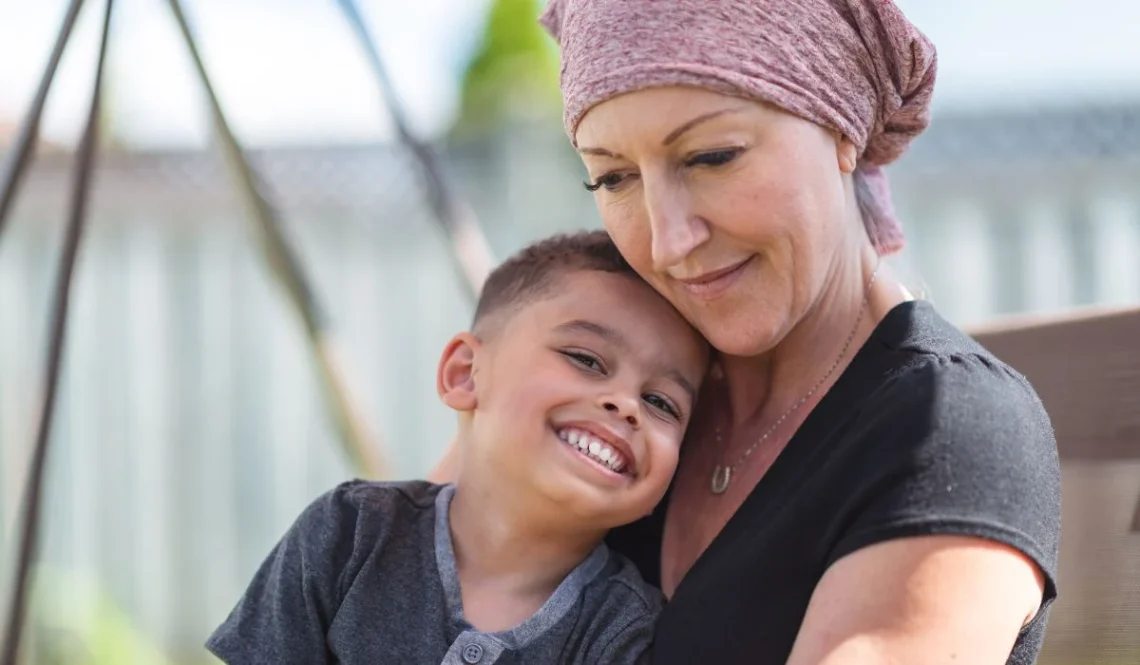Introduction
When a loved one is diagnosed with cancer, it’s challenging for the entire family—especially children. Children are sensitive and perceptive, and the way adults communicate about the diagnosis can significantly impact their emotional well-being. Open, honest, and age-appropriate conversations can help children feel safe, understand the situation, and cope better.
This article provides guidance on how to talk to children about cancer, what to say, and how to support them through the process.
Why Talking to Children About Cancer Matters
- Prevents confusion and fear caused by overhearing partial information.
- Helps children express their feelings and ask questions.
- Builds trust and openness within the family.
- Reduces anxiety and misconceptions.
- Encourages healthy coping and emotional resilience.
When to Talk to Children
- As soon as possible after diagnosis.
- Before children hear misinformation from others.
- When you feel ready to provide clear and calm explanations.
- Throughout the treatment journey, update as needed.
How to Prepare for the Conversation
- Choose a quiet, comfortable setting free from distractions.
- Plan what to say in simple, clear language.
- Anticipate children’s questions and emotions.
- Have another trusted adult present if possible.
- Be ready to provide reassurance and emotional support.
What to Say: Age-Appropriate Communication
For Young Children (Ages 3-7)
- Use simple, concrete words. Avoid complex medical terms.
- Explain cancer as “sick cells” that the doctors are trying to fix.
- Reassure them it’s not their fault and that adults are taking care of it.
- Prepare them for changes they might see (e.g., hair loss).
For School-Age Children (Ages 8-12)
- Provide more detailed explanations appropriate for their understanding.
- Encourage questions and answer honestly.
- Discuss treatment and side effects in simple terms.
- Acknowledge feelings like fear or sadness and normalize them.
For Teenagers
- Treat them like adults, offer detailed information.
- Respect their need for privacy but remain available.
- Discuss emotional and social impacts.
- Encourage them to express concerns and seek support.
Common Questions Children Might Ask
- Will the person get better?
- Why did this happen?
- Will I catch cancer?
- What will happen to me?
- Who will take care of me?
Answer honestly but gently, adapting to the child’s age and emotional state.
Supporting Children Emotionally
- Validate their feelings and encourage open expression.
- Maintain routines to provide a sense of normalcy.
- Include them in family activities and caregiving in appropriate ways.
- Offer professional support such as counseling if needed.
Helping Children Cope
- Use books, stories, or play to explain and process feelings.
- Encourage activities that relieve stress (drawing, sports, music).
- Monitor for changes in behavior, sleep, or school performance.
- Stay patient and available for ongoing conversations.
When to Seek Professional Help
- Persistent anxiety, depression, or withdrawal.
- Behavioral problems or academic decline.
- Difficulty understanding or accepting the diagnosis.
- Signs of trauma or grief needing specialized support.
Conclusion
Talking to children about a cancer diagnosis is difficult but essential. By communicating honestly and compassionately, parents and caregivers can help children understand what’s happening, feel supported, and develop healthy coping skills. This strengthens family bonds and nurtures emotional resilience during a challenging time.
FAQs:
When is the best time to tell children about a cancer diagnosis?
As soon as possible, to prevent confusion and reduce anxiety from overheard information.
How much information should I share with young children?
Use simple, honest, and age-appropriate explanations without overwhelming details.
How can I help children cope with their feelings about cancer?
Encourage open expression, maintain routines, and provide reassurance and support.
Should I involve children in caregiving?
Yes, in small, age-appropriate ways to help them feel included and useful.
When should I seek professional help for a child?
If the child shows ongoing distress, behavioral changes, or difficulty coping.






